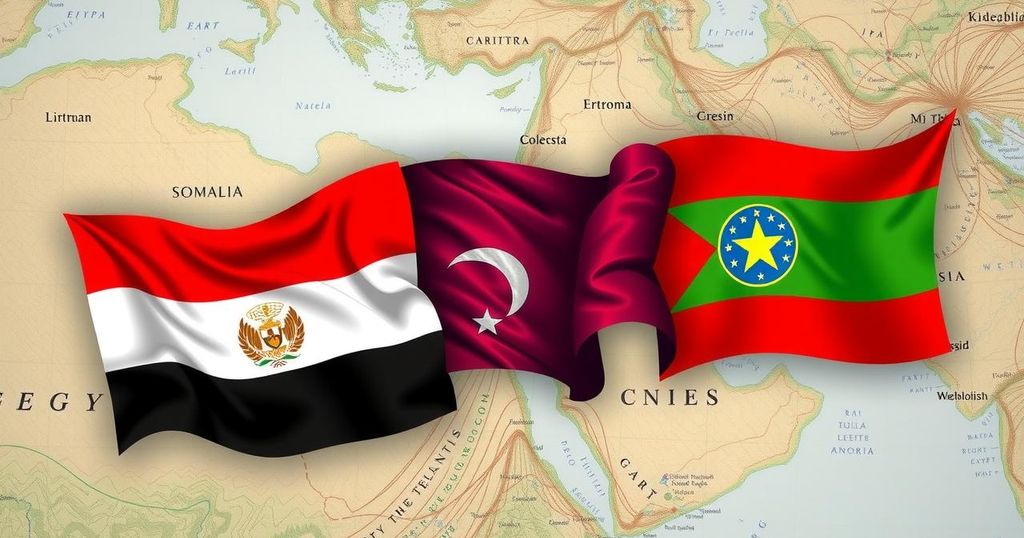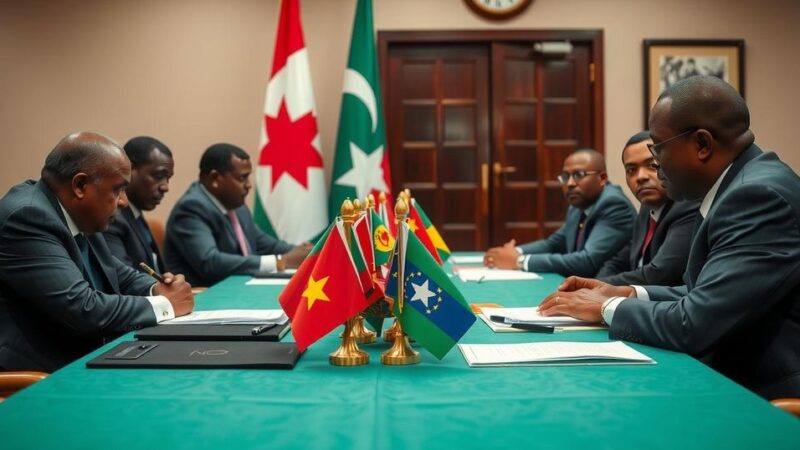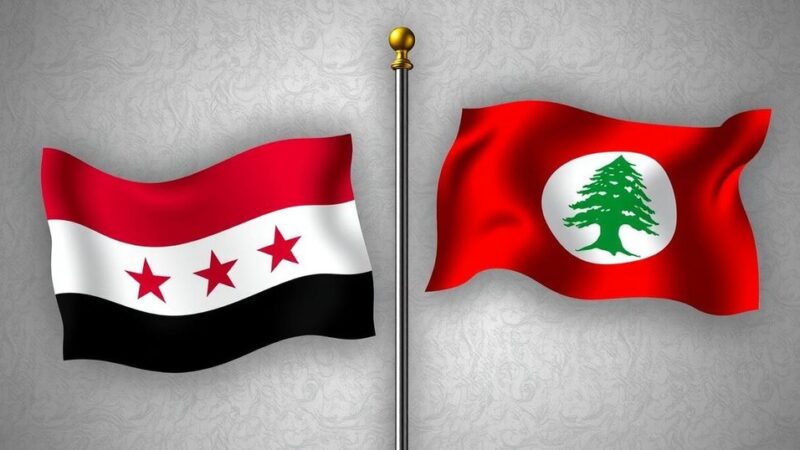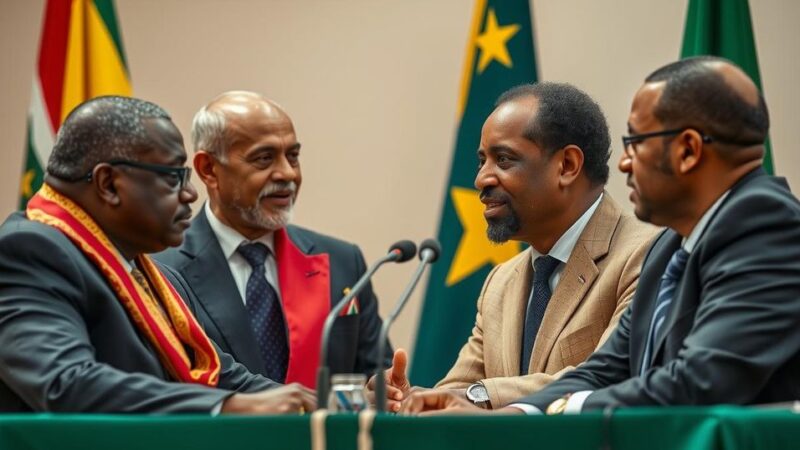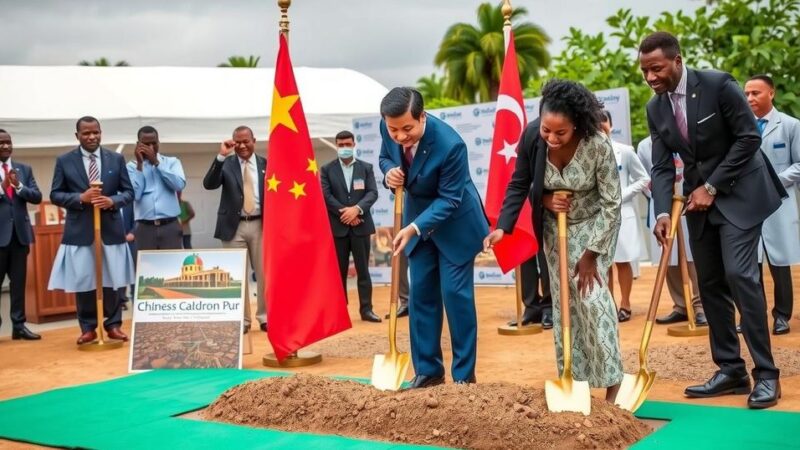Egypt, Eritrea, and Somalia are enhancing their military cooperation against perceived Ethiopian threats. At a summit in October 2024, the three nations pledged support for Somalia’s counterterrorism efforts, marking a response to Ethiopia’s growing influence and maritime agreements with Somaliland. This alliance could significantly alter regional power dynamics, particularly regarding Nile water rights and Red Sea access.
In response to perceived threats from Ethiopia, Egypt has been enhancing its strategic alliances with Eritrea and Somalia. During a summit held in Asmara in October 2024, the leaders from the three nations affirmed their commitment to strengthening military cooperation and advancing regional stability. A significant focus of their collaboration is to support Somalia’s counterterrorism initiatives, with Egypt pledging to contribute troops within the framework of the African Union mission. This military engagement is viewed as a direct counteraction to Ethiopia’s growing influence in the Horn of Africa.
The geopolitical landscape is further complicated by Egypt’s longstanding dispute with Ethiopia over the Grand Ethiopian Renaissance Dam (GERD), which Cairo considers a threat to its water security. The situation intensified with Ethiopia’s recent agreement with Somaliland, granting the latter maritime access, a development perceived as detrimental to the interests of both Somalia and Egypt. Consequently, this has propelled Somalia closer to forming alliances with Egypt and Eritrea.
Analysts interpret this trilateral summit as a decisive move by Egypt aiming to retain its dominance in the region amidst rising tensions over control of Nile waters and access to the Red Sea. Some experts have characterized this new coalition as an “axis against Ethiopia,” illustrating the intricate geopolitical dynamics at play in the Horn of Africa.
Ethiopia’s quest to regain maritime access through its agreement with Somaliland has raised significant concerns within Somalia regarding territorial integrity while simultaneously prompting Egypt and Eritrea to enhance their military and strategic partnership with Mogadishu. Egypt’s strategy encompasses not only diplomatic engagements but also military provisions, including arms shipments to Somalia and the establishment of a joint foreign ministers’ committee intended to coordinate strategic cooperation across various sectors.
As regional tensions persist, this newly forged alliance could markedly reshape the power dynamics in the Horn of Africa, potentially leading to further military and diplomatic confrontations. The forthcoming months are expected to be pivotal in determining the lasting impact of this alignment on ongoing territorial disputes over the Nile and Red Sea.
The recent strengthening of alliances among Egypt, Eritrea, and Somalia emerges from an escalating regional rivalry with Ethiopia, particularly focused on water resource management and territorial integrity. The Grand Ethiopian Renaissance Dam has created significant apprehension in Egypt concerning its water security, while Ethiopia’s maritime agreements are reshaping economic and military dynamics in the Horn of Africa. These alliances reflect a broader trend of geopolitical maneuvering that influences regional stability and security.
In conclusion, Egypt’s strategic alliance with Eritrea and Somalia represents a significant shift in the geopolitical landscape of the Horn of Africa, driven by concerns over Ethiopia’s influence and water security. This trilateral cooperation prioritizes military collaboration and regional stability, revealing the complexities of national interests among the nations involved. As these nations navigate their relationships and disputes, the implications for future regional dynamics remain profound.
Original Source: www.garoweonline.com

